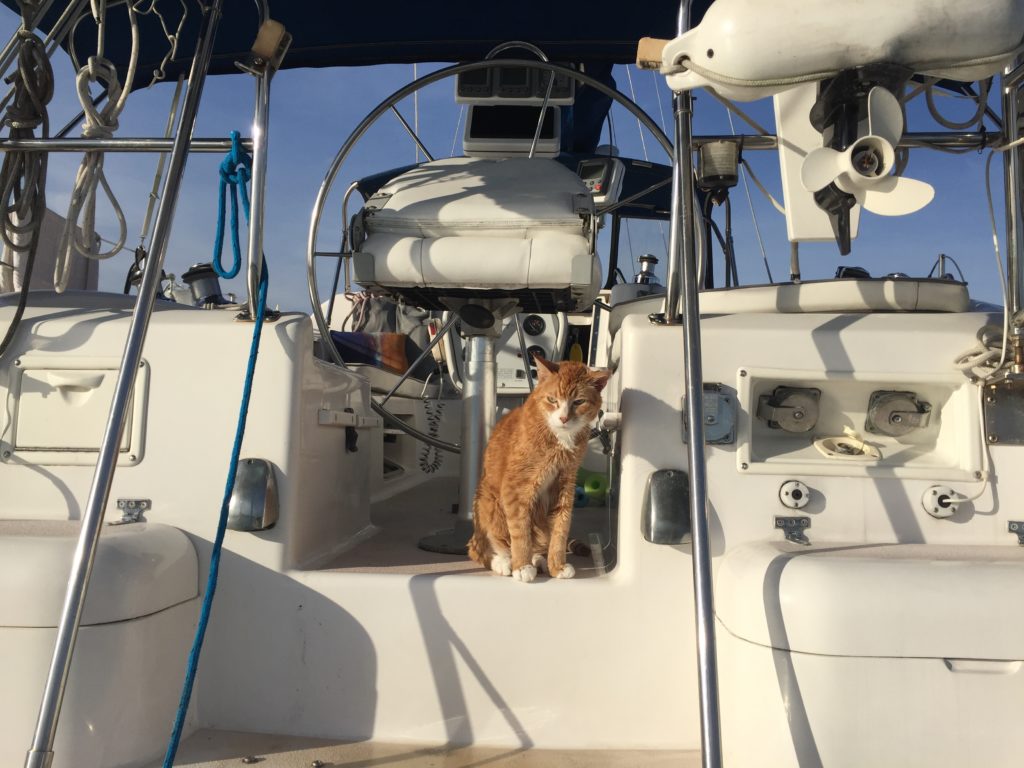Don’t look over your shoulder; you’re not going that way.
— Anonymous
I can barely remember living in an apartment, and I haven’t lived in a house for more than 17 years. I once owned a condo in Stratham, New Hampshire. I loved the back deck facing the woods, and looked forward each year to the parade of wild turkey chicks as they passed my picture window. The trees changed colors, dropped their leaves and held remnants of snow in their limbs. In spring, they sprouted pale green buds and started over again.
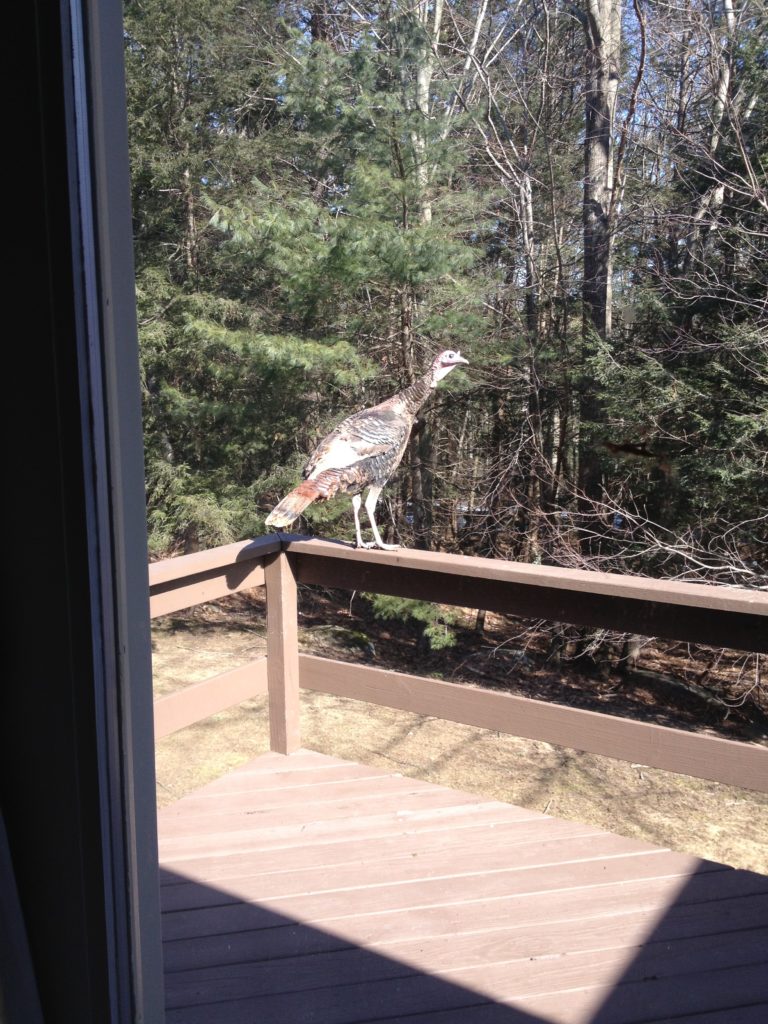
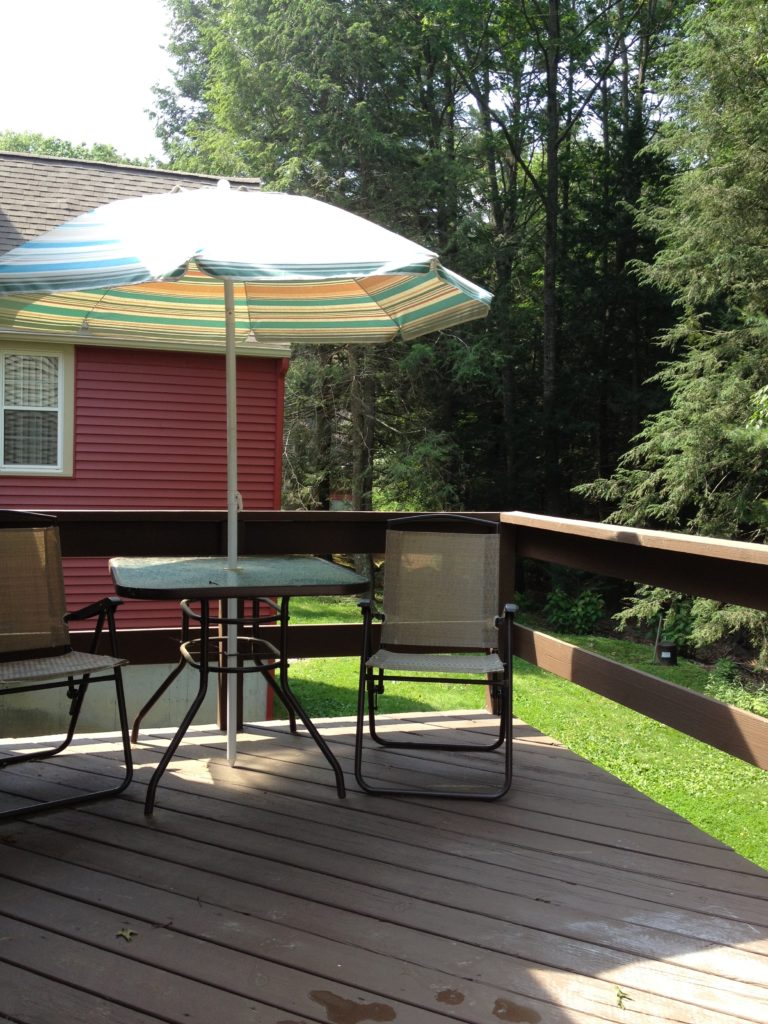
My condo deck in Stratham, NH
I am nostalgic for my New Hampshire home, but I’m not going back. I live on a boat now. Yes, Florida is hot, but you don’t have to shovel heat or brush it off your car. Each morning, I poke my head out the companionway door to feel the breeze off the water and decide whether to have my coffee in the cockpit. We wash dishes by hand, fill our water tanks, empty our waste tank, cook by propane stove, and have cocktails outside. At night, we fall asleep to gentle rocking.
CLODS are cruisers who have to leave their boats temporarily and live on land. This happens when boats need repair or when the cruisers are between boats. It’s an acronym for Cruisers Living on Dirt. We were CLODS because we dreamed of being cruisers, and planned to move onto our boat when our lease was up. When I told my best friend in New Hampshire that we were going to buy a bigger boat and live on it, she said, “Kay, what’s a liverboard?” I had told her we would be live-aboards.
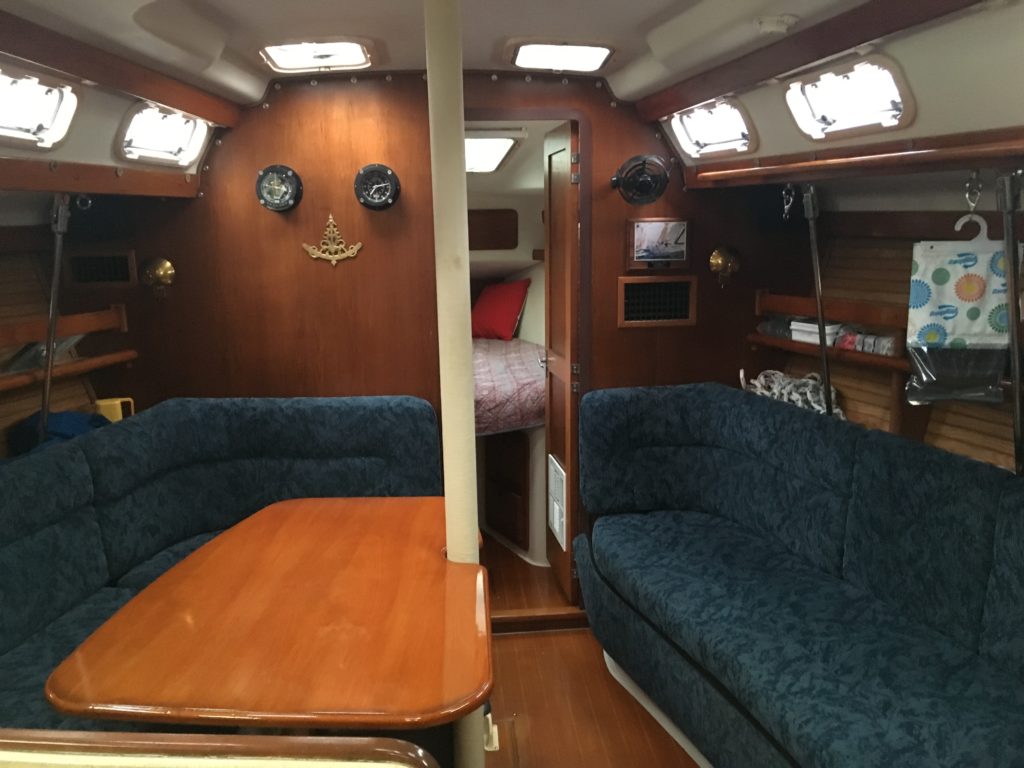
Our living quarters are small, but in that lack of space, there is freedom. It’s a freedom from stuff. The transition to the new boat involved getting rid of stuff – furniture, clothing, knick knacks, dishes, pots, appliances and pictures. Some things were harder to let go of: a clock my sister got me at a vineyard we visited in California; gifts given to me by my children, like the little snow globes with kittens inside; the sweet Hummel angel given to me at age 14 by my dearest friend as I was about to move away. (I kept the little broken angel; I couldn’t part with it.)
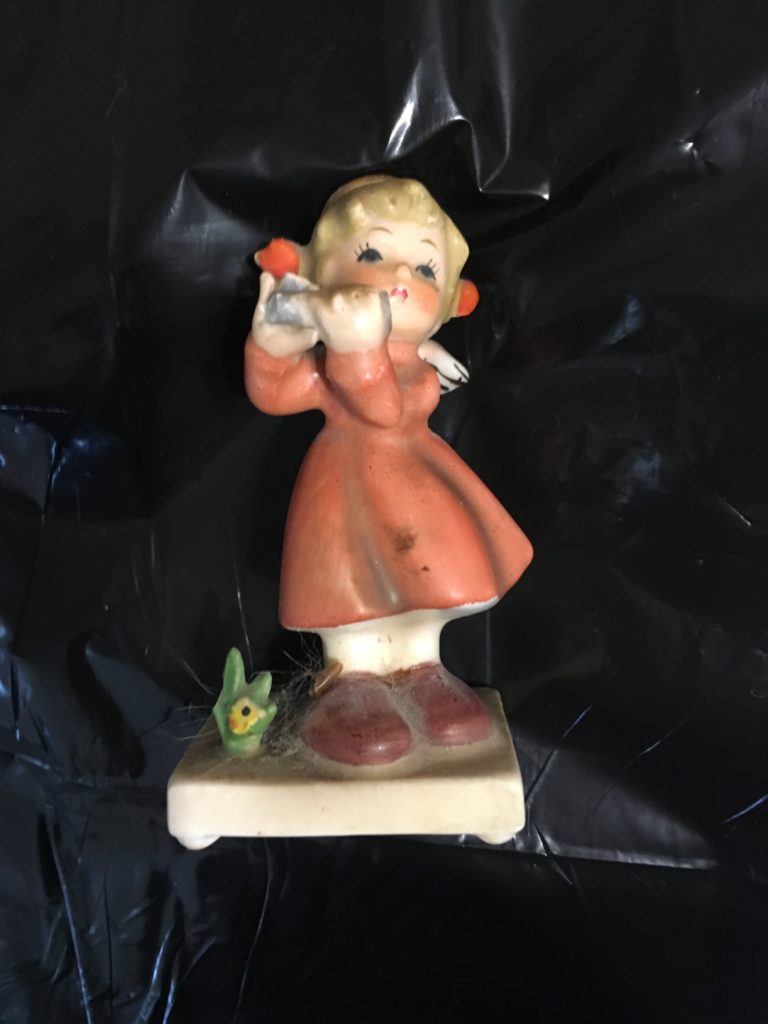
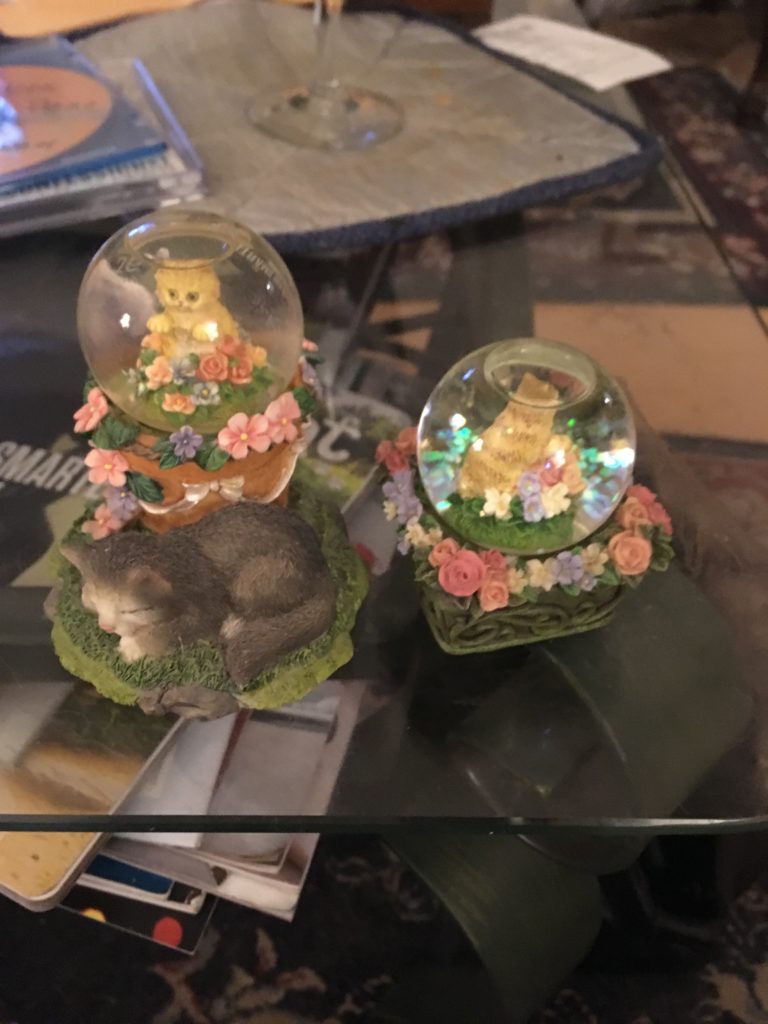
A friend gave me some good advice for dealing with the precious artifacts of a life on land: Take a picture of it and let it go. Slowly, the apartment began to empty out. We sold some things, gave some to charity, and gave away items we could have sold if we’d had more time. One middle-aged Latino came to look at our kitchenware and ended up with an entire pickup truck of furniture, appliances and dishes. From his limited command of English, we got the idea that he was in the midst of a divorce and had to furnish his bachelor pad. He got it all for free. Just before moving day, we took the few things we were keeping to a rented storage unit (most cruisers have one).
On Saturday, Oct. 6, we left my two cats in the apartment while we motored to the new slip in Hollywood, Florida, a 6-hour journey down the Intracoastal Waterway. We had left Phil’s car at the marina so we could return for the cats and the final cleaning. I took just one picture that day, and I barely remember the trip itself. I know the wind was blowing hard from the east and we broke two stanchion bolts with a hard bump into the fuel dock when we were trying to leave. I felt responsible for that, since I should have been fending off as we pulled away instead of wrapping up the bow lines. With only two people on board, it’s hard to be in the right place all the time.
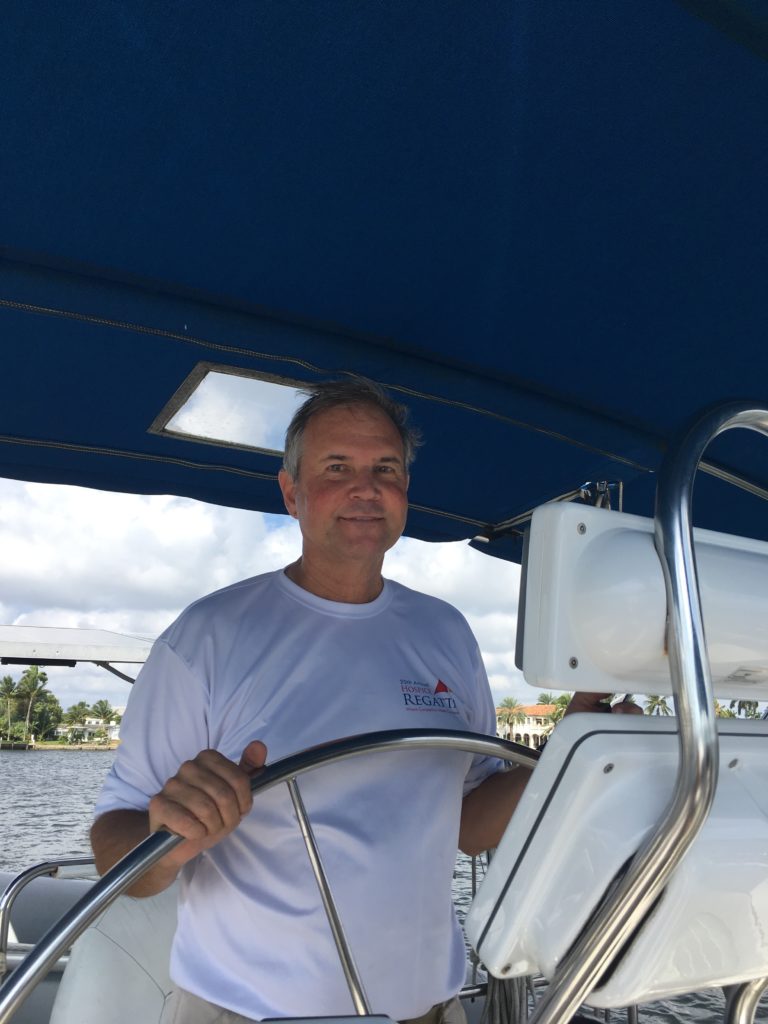
We had some trouble backing into our new slip because the canal is very narrow, and the slips are not spacious. The east wind was blowing harder by then, and we gently bumped the bow of the boat next door, but no damage was done. Our neighbor, Joe, was extremely gracious and helped us with the lines. I was about to have my own problems with that wind, and the storms it was driving onshore.
After the boat was secure, we drove back to Port Royale to clean the apartment, gather up the cats and head back to the marina in our separate cars. The cats are mine; I’ve had them since they were tiny kittens. Phil has always been understanding of my need to keep them with me, and of my responsibility for their lives. The truth is, he would rather not live with cats, and the care of them is my duty, not his. I packed them into two carry boxes – one plastic cat carrier, and one cardboard carrier we had gotten from the vet for a hurricane evacuation.
It was getting late, and we were exhausted, so Phil volunteered to finish the cleaning as the cats and I took off in my Prius for our new home onboard. The cats cried all the way to the marina, fraying my nerves. Just as we got to the parking lot, it began to rain and I heard the familiar sound of wind through the sailboat rigging. It did not occur to me that the wind would be blowing the boat off the dock, making an unsafe gap over the water. I was about to find out.
It was dark on Dock 5, as the marina was in the process of replacing the dock lights. I found a dock cart and loaded the two crying cats in, along with a case of catfood and the new litter box. As I approached the boat with my load, the skies opened up and rain poured down on me, the cats, and – to my horror – the cardboard cat carrier. Now I pictured the gap between the dock and the boat swallowing my cat as the cardboard gave way. I would have no way of finding her, let alone pulling her out of the water and onto the boat.
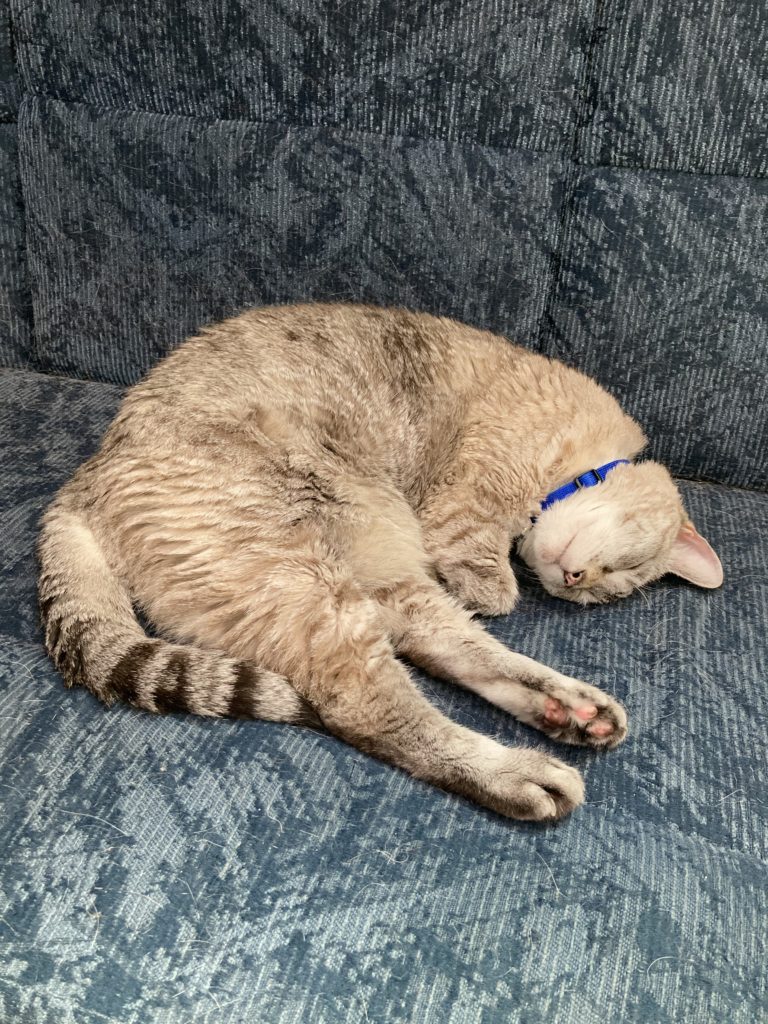
So, the first order of business was getting the heavier female cat (Maggie) on board in her carrier before it fell apart. It was high tide, and the wind was getting stronger as the squall passed overhead. I pulled on the dock line to get the boat closer, but the wind kept pulling it back. I couldn’t step aboard with the carrier because I had to hold the bottom so she wouldn’t fall out. Out of sheer will power, I pulled the boat close, and as it started drifting away from me, I threw the cat carrier onto the cockpit cushion, hoping the poor thing would land upright. It didn’t. It leaned dangerously into the cockpit table at an angle. But she was on board and not in the water.
Cat number two (Max) was even harder. Even though the carrier had a handle, and was sturdy, it was heavy and awkward. I tried several times to pull the boat in, and the wind pushed it away. I was soaked and I could hear Maggie crying from her soggy cardboard box. Max was desperately trying to escape from the carrier in my hand, and I pulled hard on the dock line to get the boat close enough to shove the box into the cockpit. I got it on board, but the carrier was perched dangerously close to the edge of the catwalk as the wind pulled it away.
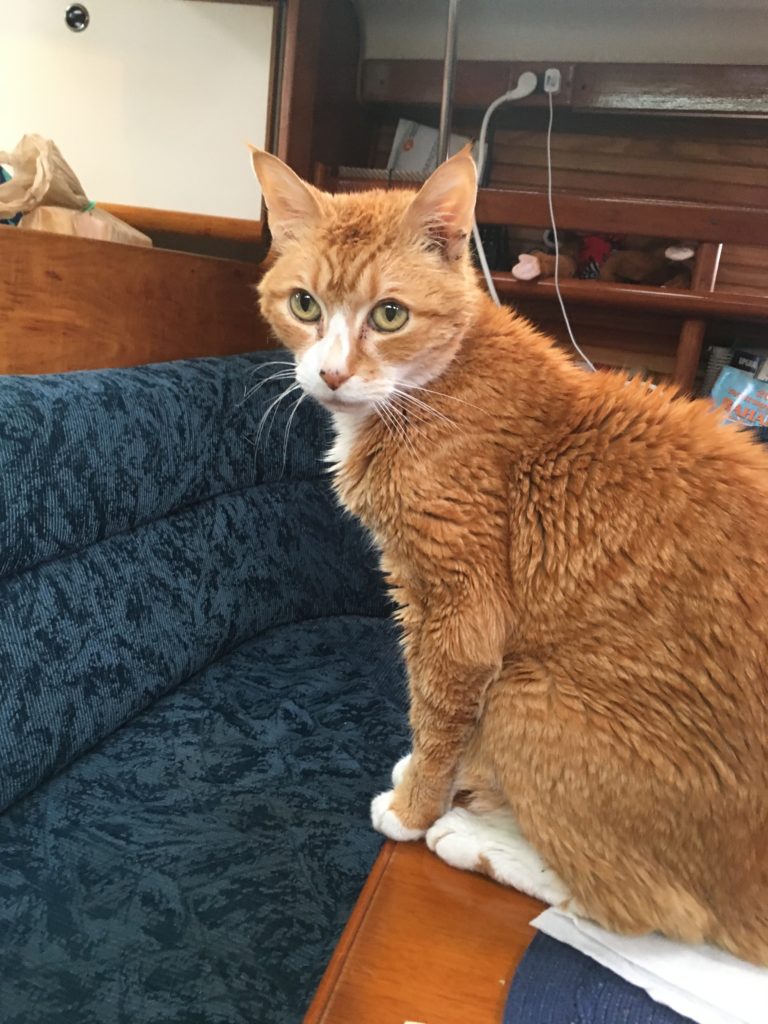
I decided the other items could wait until Phil arrived. I took a big step from the dock and got one foot under the cat carrier before the boat drifted away and I hung on to the bimini with my other foot hanging behind me. I shoved the carrier into the cockpit and it fell sideways – hard – onto the deck. Max stopped complaining for a tortured minute and I opened up the companionway. One at a time, I carried the cats onboard and released them from their boxes. I closed the hatch with the wooden slats and sat down inside.
“We’re home,” I said out loud. Then I put my head in my hands and cried. It was relief, exhaustion, and regret. “What have I done?” kept coming to mind. The animals were wandering around, exploring, and were finally quiet. After a few minutes of feeling sorry for myself, I wanted to text Phil to let him know I was home safe. Then I realized my purse, and my iPhone, were outside in the dock cart along with a case of cat food cans and the litter box.
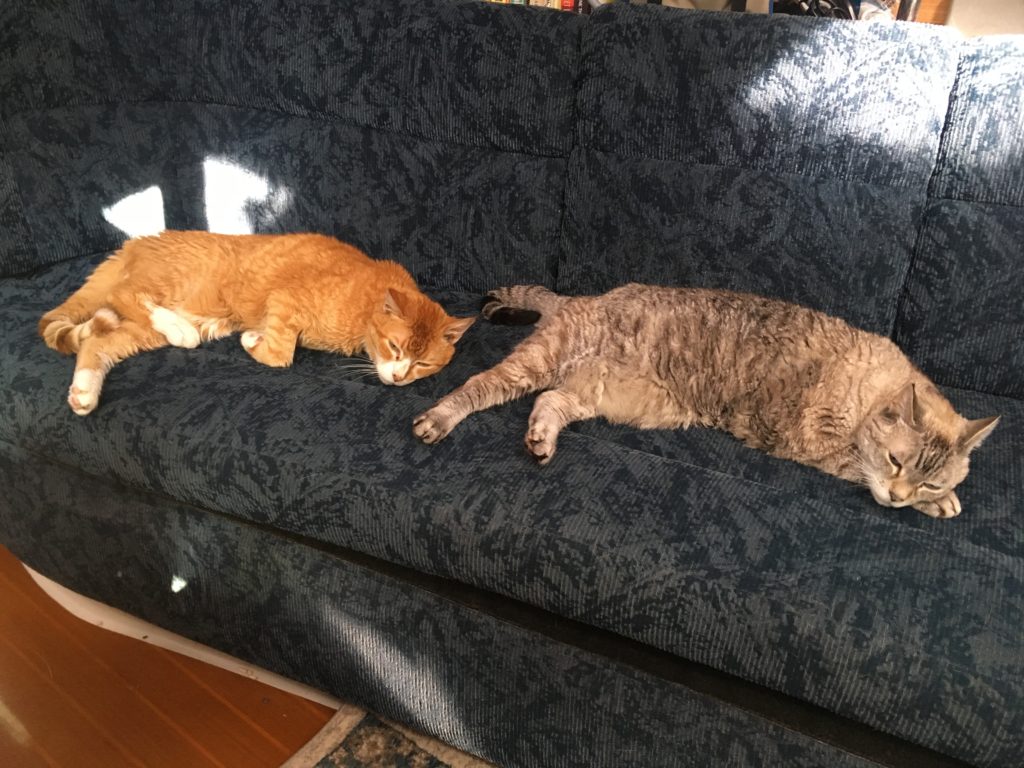
The rain was stopping as I ventured out again, but the tide was high and the dock looked like a long leap away in the dark. As I wondered how to get off the boat without going swimming, a neighbor came down the dock and asked if I needed help. As he took the items out of the dock cart and handed them up to me, he introduced himself and welcomed me. He was an angel named Patrick.
Marinas are full of characters and interesting travelers, old salts and new cruisers. There are the bachelors on boats (the “BoBs”) who divorced and lost their homes to ex-wives and children, and the families with children whose weekly laundry flaps from the lifelines. There are experienced captains who live aboard here between assignments of bringing mega-yachts to their owners around the islands. There are sailing couples who walk their dogs every morning and evening. We know their dogs’ names before we know theirs.
Marina people form a community like no other I’ve experienced. If you need help, or company, or a simple gathering around someone’s BBQ, you’ll find it. When a boat comes in, multiple residents rush to the dock to catch the tossed lines. Patrick was no different; he just came along exactly when I needed help.
By the time Phil arrived, I had the litter box set up, the cats were eating, and I was calm. We had a drink and I told him the story. He’s a patient listener, even when I go on and on with detailed complaints. When I was done, he was quiet for a minute, then he made me laugh with the phrase we always use when life on board is anything but idyllic. “Living the dream!” he said. Then he made us another round of drinks.
